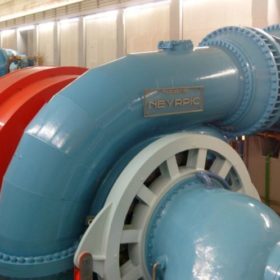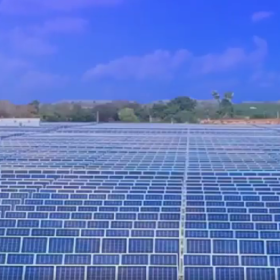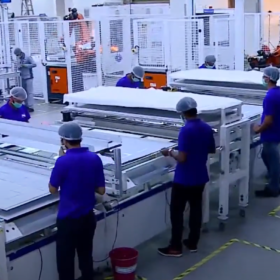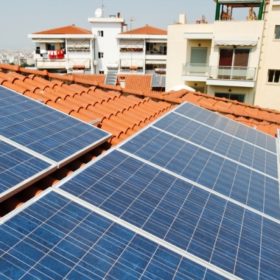Strong policy focus needed to drive pumped storage development
Despite being a mature and largely indigenous technology, pumped storage hydropower’s operational capacity in India remains very low at 3.3 GW because of the high development costs and inherent challenges in constructing these schemes.
Relaxation of ALMM order a near-term positive for solar power developers, says ICRA
The Ministry of New & Renewable Energy has exempted solar projects to be commissioned till March 31, 2024, from the requirement to source modules from the Approved Models and Manufacturers (ALMM) list. The move provides developers with the flexibility to source modules at the most cost-competitive rates.
The case for using gas-based plants to serve peak power demand
Using some of India’s existing gas-based power capacity as peaking plants would be more economical than the other options in the short-term market for peak power supply. Gas-based power plants can provide ancillary services to maintain the grid’s power quality, reliability, and security as renewable energy capacity increases, says a new report by IEEFA.
Karnataka, Gujarat lead the way in transition to clean electricity
A joint study by IEEFA and Ember analysed 16 Indian states on their preparedness to shift away from fossil-fuel-based power, ability to incentivize greener market participation, power system’s reliability, and policies pushing for power sector decarbonization. It shows Karnataka and Gujarat fare well in progress towards clean electricity transition.
Guidelines for pumped storage projects in India
The draft guidelines released by the power ministry include concessional climate finance and utilization of exhausted coal mines as sites for pumped storage projects.
Ensuring a just energy transition
The renewable energy sector must lead responsibly by addressing land use, circularity and financing.
Pausing ALMM will hit solar manufacturing investments, say industry bodies
The implementation of the ALMM (The Approved List of Models and Manufacturers) mandate is crucial to protect INR 53,773 crore of investments that India would require over the next 3-4 years to indigenize the domestic solar manufacturing value chain, say manufacturers.
Union Budget 2023: Mainstreaming flexible and resilient grids
While the current policy regime supports the adoption of flexible resources like batteries, grid flexibility and resilience require more focus and a range of calibrated efforts, including due acknowledgment as a sector priority and robust planning at the central and state level. The upcoming union budget provides an opportunity for the government to develop flexible and resilient grids.
Union Budget 2023-24: EV industry calls for GST cut for batteries, low-cost EV finance, and more
Players in the electric vehicle (EV) hope the government will bring down the goods and services tax (GST) on EV batteries to 5% and lower duties on raw materials required for cell manufacturing. They also call for easy, low-cost EV finance to drive customer adoption.
TERI recommends provisions for green fund in Union Budget 2023-24
Experts at TERI say the money collected as cess on coal could be used to create a Green Equity Fund and also provide viability gap funding for energy transition projects.













